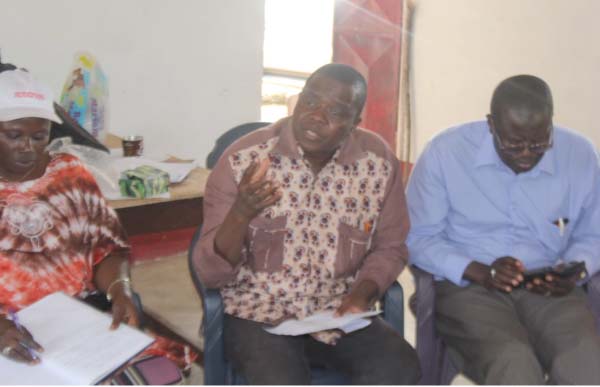
During the training, the traditional communicators developed messages that were composed into nine songs (3 in mandinka, 3 in Wolof and 3 in fula). The sons were pre-tested in Jareng, Ngawarr and Bamba kolong villages.The three day training was punctuated with songs, dances, and presentations that were facilitated by Dr. Sidat Yaffa of the University of The Gambia and Alpha Jallow from the Department of Water Resources.
ActionAid through the Agro-ecology and Resilience Project (AERP) is working with smallholder farmers in eighteen communities in the Central River and North Bank Regions to help them cope with climate change related shocks. With many communities increasingly affected by drought, flash floods, erratic rainfall and rising sea levels, there
is more need than ever for farmers to become resilience so that they have a sustained livelihood. A very crucial issue in this is by ensuring that smallholder farmers have access to early warning information that will enable them make timely decisions on farming and farming practices. This is a challenge as farmers’ access to early warning information is limited. The project in collaboration with the “Kanyelengs” will reach out to the hard-to- reach farmers through their songs and dramas.
Speaking on behalf of the Executive Director of ActionAid, the Manager for Communications and Documentation Mrs. Jainaba Nyang Njie noted that in recent years, the incidence of disasters and shocks has increased dramatically. In 2013 alone, more than 22 million people worldwide were displaced by natural disasters - three times more than the number of people displaced by war even in such a conflict-ridden year. ‘Disasters and climate change impacts are reversing development gains like never before’. she said. Mrs. Nyang Njie urged participants to participate fully in the training because as traditional communicators, they occupy an important place in society. ‘People in the communities listen to you when you speak, when you disseminate messages through your songs, drama and so on’, she concluded.
The Project Coordinator Musu Badjie gave an overview of the project which currently is in its second phase, having successfully completed the first phase. Musu urged them to engage the communities and pass on the knowledge they have acquired.
At the end of the training, participants developed nine songs covering the three areas: climate change, CRSA and early warning.The songs were later pre-tested and will be further reviewed and documented for wider use in the communities.


